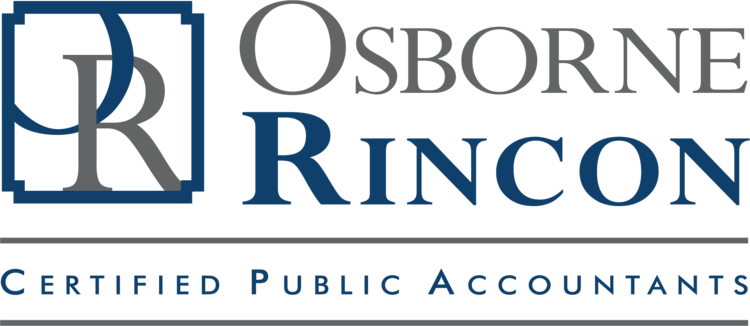Submitted by: The Partners at Osborne Rincon CPAs
With tax season on the horizon, it is important to look at a few of the tax pitfalls out there. The partners at Osborne Rincon CPAs weigh in on some of the major ones to be aware of:
Tax Pitfall to watch out for from Bruce Legawiec:
Section 199(A), Rental Real Estate – The Tax Cuts and Jobs Act enacted code section 199(A) allows up to a 20% deduction for Qualified Business Income “QBI.” Real estate rental activities may qualify for the QBI deduction; however, certain requirements must be met. IRS Rev. Proc. 2019-38 establishes “safe harbor” rules effective for 2019 tax returns. The determination of safe harbor is made annually, and requirements include: (1) Maintenance of separate books and records for each enterprise; (2) Performance of at least 250 hours of “Rental Services” for each rental enterprise annually; and (3) Contemporaneous records must be maintained (beginning 2019). Specifically excluded and not qualifying under safe harbor rules are triple net leases. However, if a Real Estate Rental activity does not meet tests under Rev. Proc. 2019-38, it may still qualify for 199(A) as a trade or business.
Tax Pitfall to watch out for from Lee Osborne:
Entity Selection – The choice of entity you should use for your business is not an easy one. Whether you incorporate (either a C or an S corporation), have a partnership (general, LLC, LP or LLP) or the simple Sole Proprietorship, is not an easy choice. When you then add the continuing changes to the tax laws, this only makes it more difficult. Some entities pay their own tax and some pass the income or losses down to the owners. Some allow capital gain tax rates and some don’t. Some have limitations on the deduction of losses, and some don’t. Some of them are more flexible for real estate versus business operations. This is why a discussion with your CPA is important when deciding which business entity to use.
Tax Pitfall to watch out for from Pedro Rincon:
Classifying Employees as Contractors – Tax-wise, the biggest difference is that you don’t have to deduct any withholding amounts or pay any employer taxes for an individual who is legitimately an independent contractor (a self-employed person you contract for services who manages their own withholding and tax amounts and does not receive benefits). But, if you get this wrong, it means you’ve had it incorrect for every payment you’ve issued and you can be subject to large fines along with the headache of untangling this mess. Misclassifying employees also impacts the deductions you claim on your business taxes, as the costs of contract labor are deductible as are employer-paid payroll taxes.
Tax Pitfall to watch out for from Jason Schneider:
Mixing Business and Personal Expenses – One of the biggest tax pitfalls to be addressed is mixing business and personal expenses. Business expenses are defined by the IRS as being both “ordinary and necessary.” This is different for each industry, but keep in mind that business expenses should be common and accepted in your trade or business (ordinary) and one that is helpful and appropriate for your trade or business (necessary). Running personal expenses through your business could trigger an IRS audit or invalidate the asset protections afforded by a corporation or an LLC. Keeping clean records of your business expenses is paramount to ensuring you are entitled to all the business expenses you have incurred.
For more information call Osborne Rincon CPAs at 442-307-5512
